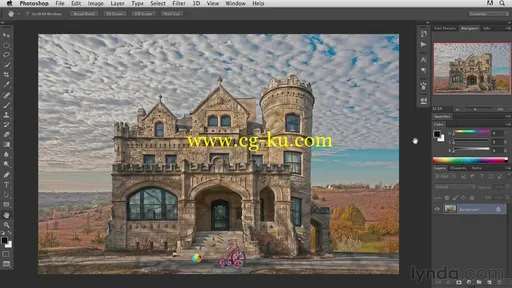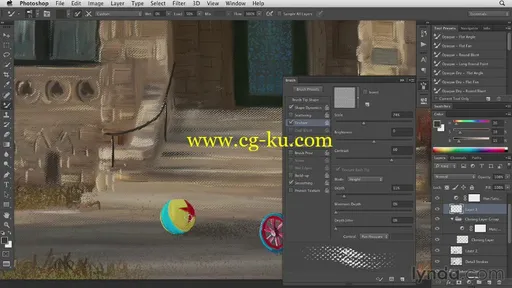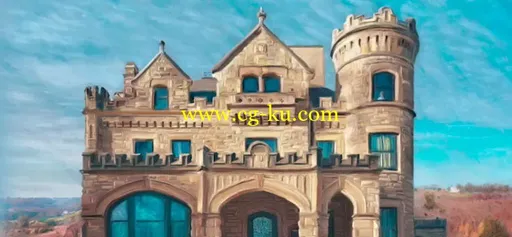
Lynda - Digital Painting: Architecture
MOV+Project files | AVC 392kbps | English | 960x540 | 15fps | 4h 46mins | AAC mono 96kbps | 6.89 GB
Genre: Video Training
Learn to think like a painter and render images that look like they were created with oils or acrylics, using the latest digital artist's tools. Author and artist John Derry introduces the process of interpreting a photograph into a painted work of art. He begins by explaining his system of visual vocabularies, which describe how to replace the visual characteristics of a photograph with that of expressive painting, and also shares the custom brush sets and actions he uses to achieve these results in Adobe Photoshop. The course also covers working with filters, layers, effects, and more to add further detail and texture.

Introduction
Introduction
Using the exercise files
Installing custom content
Setting up Wacom express keys
Setting Wacom touch ring preferences
Setting Wacom stylus preferences
Division of labor: Image prep and painting
1. Photographic Reality vs. Expressive Interpretation
Visual vocabularies
The vocabulary of photography
The vocabulary of painting
Looking at reality through a mental painting filter
2. Image Preparation: Working with the Source Photograph
Removing lens distortion with the Adaptive Wide Angle filter
Removing distractions
Don't be a slave to the original photograph
Correcting image adjustments
Telling a story with added image elements
3. Image Preparation: Modifying Tones
The eye has a better sensor than a camera
Adding natural shadows with Field Blur
Using the Shadow/Highlight adjustment filter
Using the HDR Toning filter
4. Image Preparation: Modifying Color and Detail
Resolution is in the brushstrokes
Using the Surface Blur filter
Using the Displacement filter to add imperfections
Using the Oil Paint filter
Making tonal and color corrections
5. Using Nondestructive Layer Painting
Nondestructive layer painting (NDLP): Your creative safety net
Setting up the Mixer Brush cloning action
Using cloning layers
Working with adjustment layers
6. Working with Brushes
Using tool presets and not brushes
Categorizing and organizing brushes
Adding canvas texture
Using Sample All Layers
7. Expressive Interpretation: The Underpainting Layer
You must destroy detail
Establishing compositional structure
Determining a style and sticking to it
Painting in progress: Finishing the underpainting layer
8. Expressive Interpretation: The Intermediate Layer
Understanding simplified indication
Understanding color: Warm advances, cool retreats
Painting in progress: Introducing texture to the intermediate layer
9. Expressive Interpretation: The Detail Layer
The play's the thing
Focusing on the subject through detail
Using a traditional paint color swatch set
Painting in progress: Completing the detail layer
Adding surface texture effects
10. Expressive Interpretation: Final Refinements
It pays to wait a day
Adjusting your importance hierarchy
You'll never paint the same thing twice
Helpful resources and inspiration

发布日期: 2015-07-20